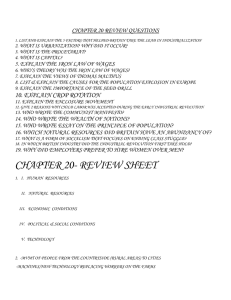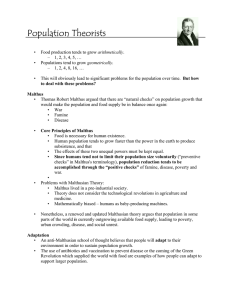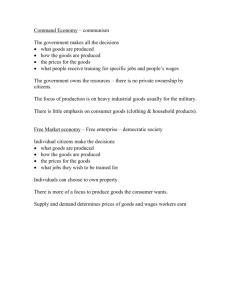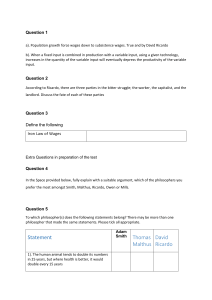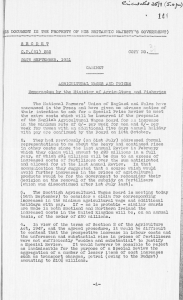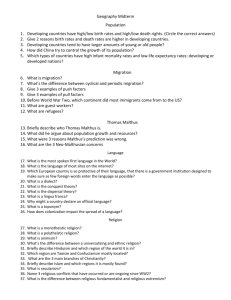Document 14385712
advertisement
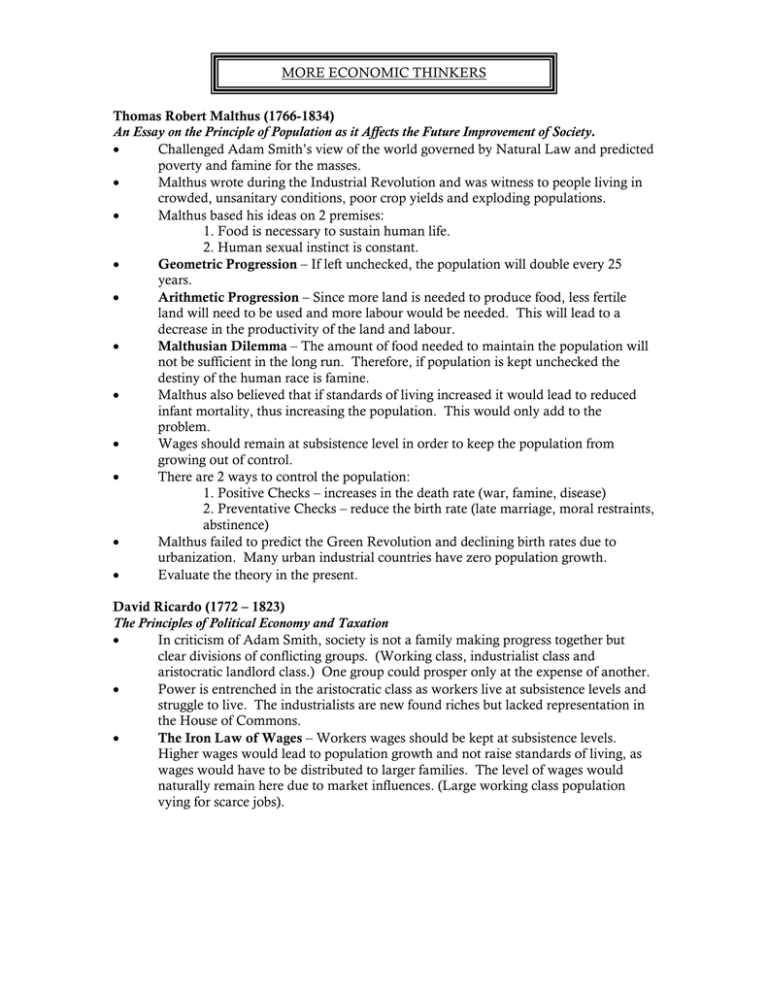
MORE ECONOMIC THINKERS Thomas Robert Malthus (1766-1834) An Essay on the Principle of Population as it Affects the Future Improvement of Society. • Challenged Adam Smith’s view of the world governed by Natural Law and predicted poverty and famine for the masses. • Malthus wrote during the Industrial Revolution and was witness to people living in crowded, unsanitary conditions, poor crop yields and exploding populations. • Malthus based his ideas on 2 premises: 1. Food is necessary to sustain human life. 2. Human sexual instinct is constant. • Geometric Progression – If left unchecked, the population will double every 25 years. • Arithmetic Progression – Since more land is needed to produce food, less fertile land will need to be used and more labour would be needed. This will lead to a decrease in the productivity of the land and labour. • Malthusian Dilemma – The amount of food needed to maintain the population will not be sufficient in the long run. Therefore, if population is kept unchecked the destiny of the human race is famine. • Malthus also believed that if standards of living increased it would lead to reduced infant mortality, thus increasing the population. This would only add to the problem. • Wages should remain at subsistence level in order to keep the population from growing out of control. • There are 2 ways to control the population: 1. Positive Checks – increases in the death rate (war, famine, disease) 2. Preventative Checks – reduce the birth rate (late marriage, moral restraints, abstinence) • Malthus failed to predict the Green Revolution and declining birth rates due to urbanization. Many urban industrial countries have zero population growth. • Evaluate the theory in the present. David Ricardo (1772 – 1823) The Principles of Political Economy and Taxation • In criticism of Adam Smith, society is not a family making progress together but clear divisions of conflicting groups. (Working class, industrialist class and aristocratic landlord class.) One group could prosper only at the expense of another. • Power is entrenched in the aristocratic class as workers live at subsistence levels and struggle to live. The industrialists are new found riches but lacked representation in the House of Commons. • The Iron Law of Wages – Workers wages should be kept at subsistence levels. Higher wages would lead to population growth and not raise standards of living, as wages would have to be distributed to larger families. The level of wages would naturally remain here due to market influences. (Large working class population vying for scarce jobs).
